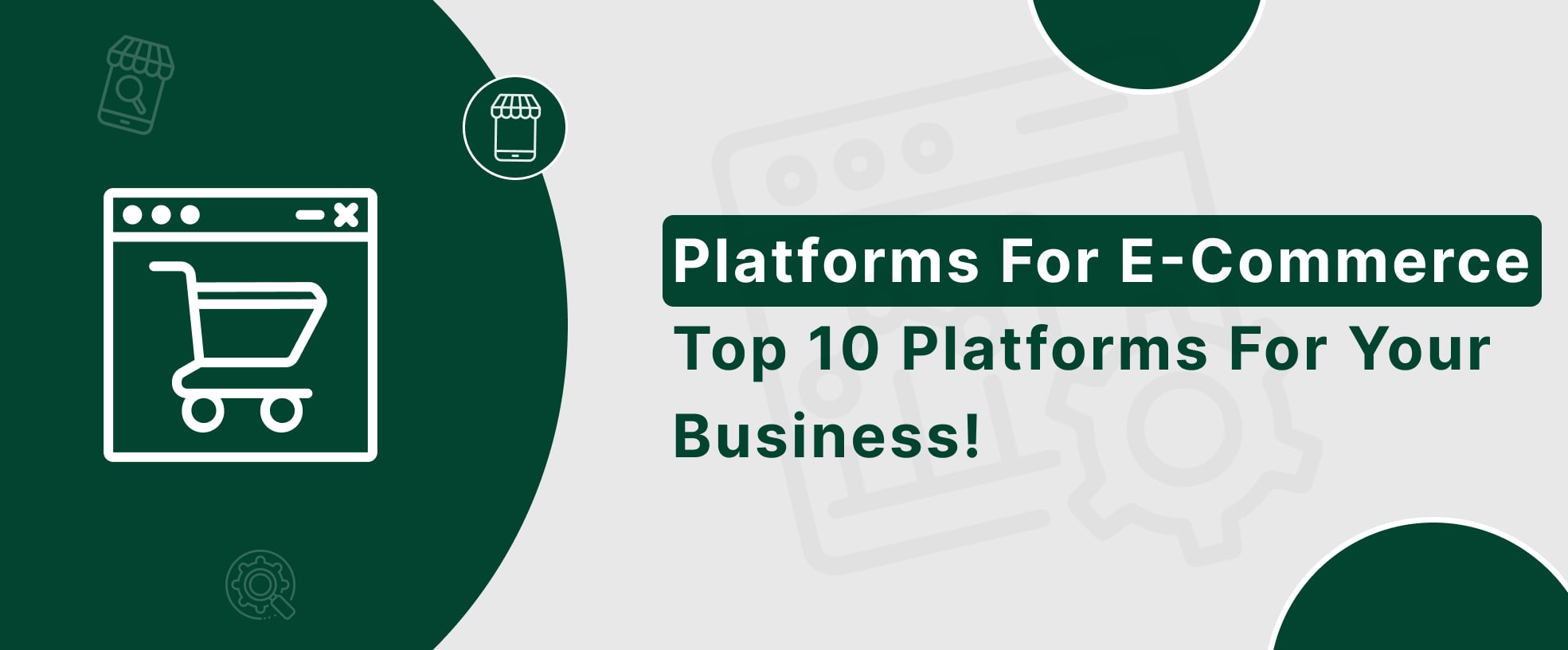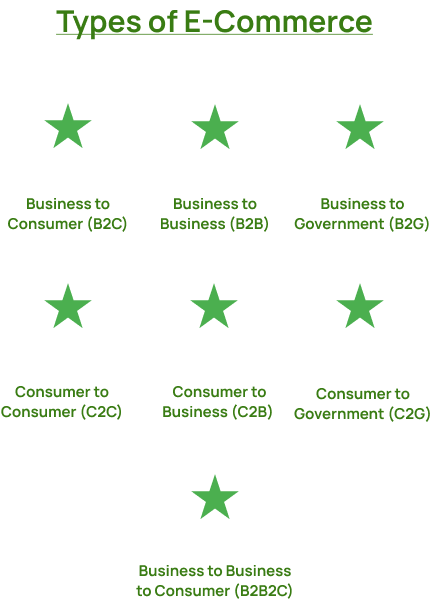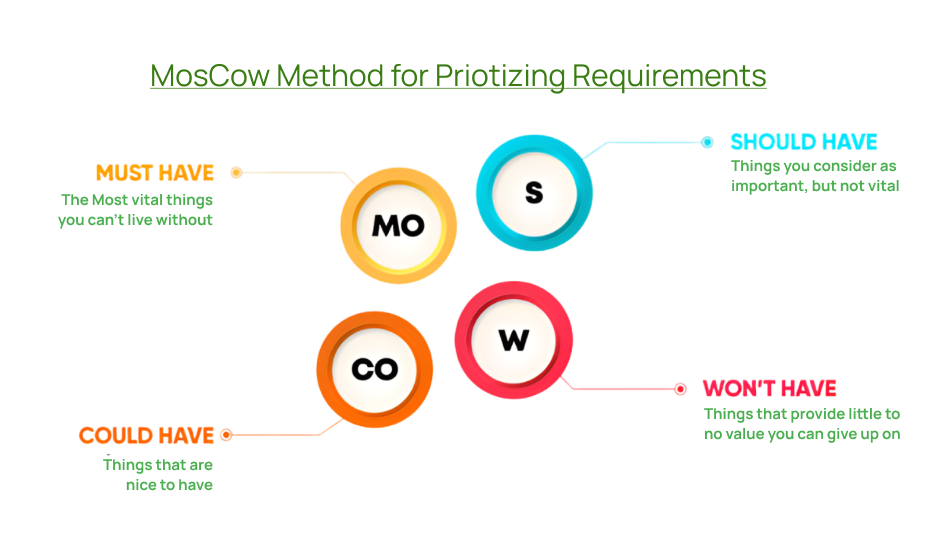Platforms for E-commerce: Which one’s the best for you?

If you want to reap the sweet fruits of tremendous ecommerce growth in almost all industry verticals, your focus on ecommerce platform selection is mandatory. Therefore, today, the ecommerce development team at iCommuneTech is presenting a comprehensive guide on platforms for ecommerce for all types of businesses and which one is best for you.
According to the Hostinger Tutorial website, global retail sales will increase manifold from today to 2027. The growth story in ecommerce begins with easy access to ecommerce portals, thanks to increased usage of mobile devices for online shopping.
When you say that we are looking for the best ecommerce platform, the word ‘Best’ is subjective and depends on your business type, requirements, and, most importantly, budget at present and allocation of funds for growth/expansion and maintenance.
Types of E-commerce:
According to Wix, there are seven types of ecommerce prevailing in the current market, and those are:
1. B2C (Business-to-Consumer)
2. B2B (Business-to-Business)
3. B2G (Business-to-Government)
4. C2C (Consumer-to-Consumer)
5. C2B (Consumer-to-Business)
6. C2G (Consumer-to-Government)
7. B2B2C (Business-to-Business-to-Consumer)

However, many ecommerce veterans,classified ecommerce types a bit differently.
Whatever they may be, our perspective is to divide them into users (business) based ecommerce platforms, and they are:
1. Best platforms for ecommerce startups
2. Best platforms for ecommerce small businesses
3. Best B2B platforms for ecommerce
Best Platforms for Ecommerce Startups
A startup business is a business that starts something new and starts from scratch. There is a lot of uncertainty. Another issue is the limited funding of most startups that wish to go online.
These two factors we should address when choosing the best platform for e-commerce startups. Rests are business-specific requirements that your clients have to decide which ecommerce platform is best for them. We have short-listed some of the best platforms for ecommerce startups here.
#1 – WooCommerce:
In 2021, WooCommerce shared 27% of the ecommerce market and remained on top. Technically, WooCommerce is a set of ecommerce plugins attached to a WordPress website.
Benefits:
#2 – Shopify
Many startups have plans to go for dropshipping ecommerce business in the near future. Our team recommends they try Shopify. It’s a SaaS-based platform for ecommerce with a lot of built-in features and easy integration with thousands of apps to meet your diverse needs.
#3 – Square Online:
To create an ecommerce store with Square online, you don’t need a web developer. It has an intuitive UI to make your storefront fit your needs and imagination.
1. Square is ideal for low-volume sellers. So, many startups prefer it.
2. It collects payment on the online payment process for each transaction. Otherwise, everything is free.
3. It accepts most modes of digital payment, including online, card, digital wallet, Google Pay, Square Pay, etc.
4. Social media integration is seamless and lets you capture leads and allow various incentives on social media.
5. It has limited features and integration, but it is enough for a startup.
Best Platforms for Ecommerce Small Business
Of course, small businesses have a limited budget to build the best ecommerce platform. However, they have a complete idea of the required features, functionality, and integration with their ecommerce storefront. Therefore, they are one step ahead of startups. Our team at iCommuneTech has prescribed the following best ecommerce platforms for small businesses.
#4 – Magento
Before Magento 2, e-commerce developers preferred Magento for SMBs and enterprises due to its complications in development and maintenance, requirements, and high budget.
Now, everything has changed, and the SaaS version of Magento is available for small businesses to start their online venture quickly without much fuss. Adobe Magento offers a premium subscription model for small businesses.
Magento lets you create the best ecommerce websites for small businesses.
#5 -BigCommerce:
BigCommerce is a SaaS-based ecommerce platform with tons of built-in essential ecommerce features suitable for scalability when your small business grows and becomes a medium one.
BigCommerce lets you develop the best website for small e-commerce businesses. It’s one of the best online store platforms for small businesses.
1. BigCommerce has a global CDN for fast content loading.
2. It’s ready to integrate B2B payment.
3. It has a native POS that allows you to get sales updates.
4. It offers easy integrations for marketing incentives such as custom discounts.
5. It lets you integrate multiple payment systems and has no transaction fee.
6. It provides unlimited product listing facilities, bandwidth, and staff/backend user accounts.
7. Round-the-clock support.
#6 – OpenCart:
As its name suggests, it’s an open-source ecommerce platform ideal for SMBs.
Contact Us now!
Best B2B Platforms for Ecommerce
B2B businesses have unique requirements when they go to online store creation because their audience differs from B2C businesses. Therefore, the ecommerce team at iCommuneTech has decided on the following options for them.
#7 – Salesforce Commerce Cloud
1. It has a complete SaaS nature.
2. It has an expensive omnichannel marketing option for B2B clients.
3. It offers powerful reporting.
4. It integrates with more than 1K integration platforms but is limited to API integration.
#8 -SAP:
SAP Commerce Cloud (Hybris) is designed for large or enterprise-grade ecommerce businesses.
#9 – nopCommerce:
It’s a Microsoft technology platform with an ASP.NET ecommerce solution.
#10 – Adobe Commerce (Magento):
It’s an enterprise version with a self-hosted option. So, ecommerce developers can infuse unlimited B2B features and functionality specific to the business niches of their clients. You can develop a Magento ecommerce solution from scratch and host it on the platform you choose with complete freedom.
It has unlimited features and integration with third-party applications, extensions, and services. Therefore, our team rates it an excellent option for B2C and B2B ecommerce solution development.
Essential Factors while selecting the Ecommerce Platform for Your Business
As we have concluded the top 10 platforms for ecommerce. Now, we must get to know which essential factors should be considered during ecommerce selection.
Interestingly, the net solution, has prescribed a method to make the proper selection. According to them, the following criterias can help a business decide the best ecommerce platform.

The following are factors you can consider when selecting an e-commerce site:
1. Hosting and platform ownership
2. Cost of ownership
3. Integrations.
4. Themes and user experience (UX).
5. Speed and scalability of ecommerce platforms.
6. Ease of use and functionality.
7. Security of the platform.
8. Payment gateway support
9. Personalization.
10. Mobile-friendliness
11. SEO-friendliness
12. Order management system
| We prefer some must-have features in your ecommerce, such as: | |
|---|---|
| Robust catalog | Order tracking |
| Single customer view | Powerful analytics |
| Flexible shipping options | Flexible pricing options |
| Customer review features | Social media integration |
| AI-powered chatbot integration | Headless commerce option |
| Multiple payment gateway integration options | Taxes and accounting integration |
CMS for Business Website – Which One to Choose in 2025?
Conclusion: The Best Platforms for Ecommerce
In the quest to find the best ecommerce platforms for clientele from a diverse range of industries, our team at iCommuneTech has drawn the following outcomes.
->If you are a startup and are in a hurry to reach the market, we prefer the Shopify platform for ecommerce to do it quickly.
->Similarly, if you have a long-term plan to stay and grow but a limited budget, WooCommerce is an excellent choice for it. Our WooCommerce developers are ready to extend helping hands with market-competitive quotes and exceptional services.
->If you are a small business and thinking of a SaaS-based e-commerce platform, there are many options, such as BigCommerce, Wix, Squarespace, etc.
->However, our likeness is Magento, either with a SaaS-based premium subscription or created from scratch, meeting your long-term requirements and growth in the future. Our Magento ecommerce developers have the knacks to create a highly customized, feature-rich, and tailor-made ecommerce solution to meet your business-specific needs and plans.
If you are an enterprise looking for something big and a custom solution for your aspirations, then look no further! We will build you the best website tailored to your needs, so contact us and let’s have a phone call to discuss this further!
